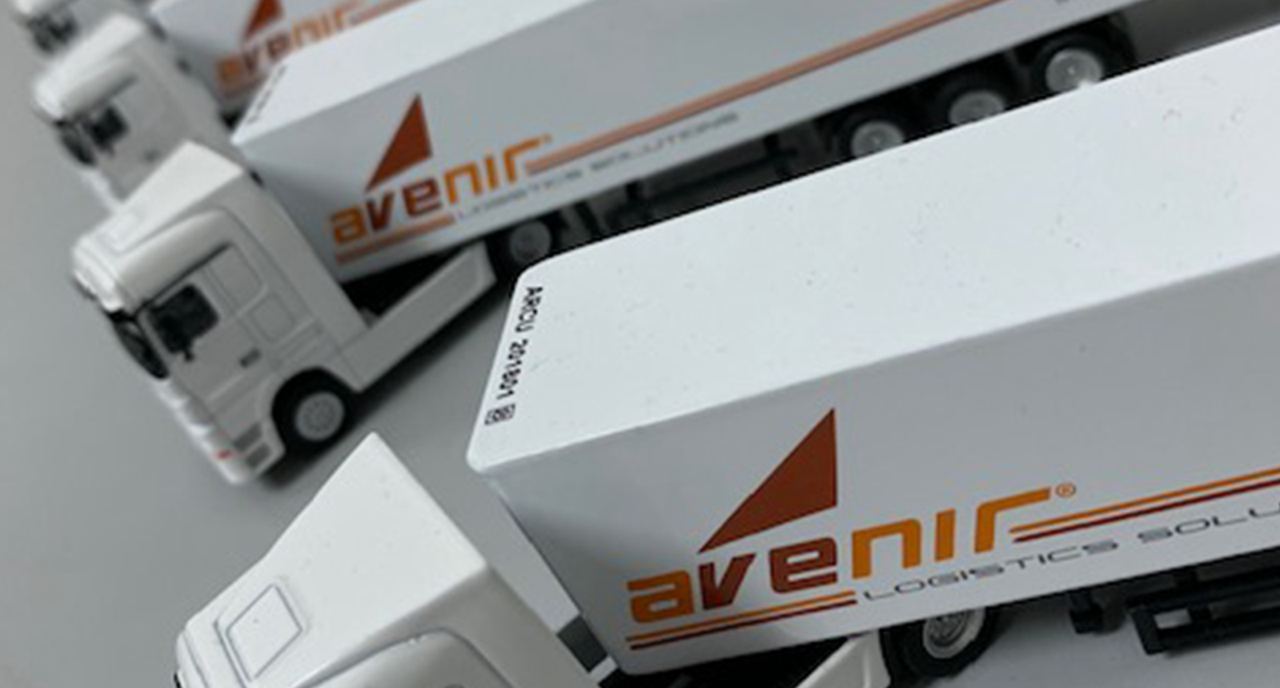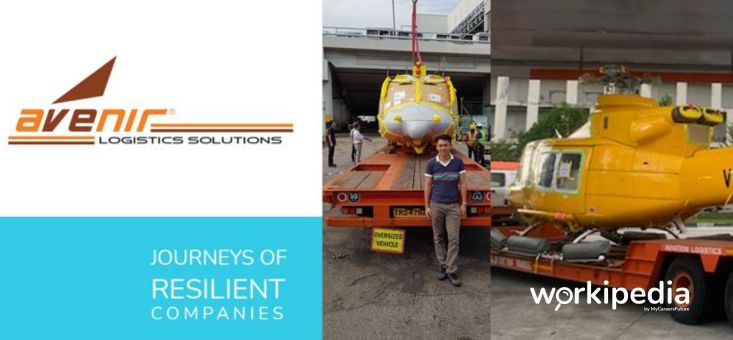41-year-old Alan Chia and his younger brother started Avenir Logistics Solutions Pte Ltd in 2016, transporting mainly bulk cargo. The newcomers to the sector decided to do things big and bold intentionally right from the outset – be it the logo or the vision of the business itself.
“Our friends asked us ‘Eh why is your logo so big?’ We wanted our phone numbers noticed and we wanted the multinational companies (MNCs) to notice us. We service a number of MNCs.” It worked. Research and more ready clients helped point the pair towards high-value cargo, which signalled the highest potential for growth and returns. The reasoning was clear cut.
“High-value cargo like semiconductor and wafer equipment, aircraft engines and aviation, and dangerous goods (chemicals)… these were what we started researching on. We realised there were not that many logistics companies wanting to deal with such cargo simply because of the cost of maintaining the equipment as well.”
With ready customers, Alan dived into this area of cargo transportation.

Surveys, road transportation studies, research and working closely with the Singapore Semiconductor Industry Association, among many others, all helped in identifying where the factories were and what routes needed covering. As Alan points out, the need to track goods through their entire journey door-to-door is vital for many customers.
“Logistics these days follows this formula. You need to update the client before delivery, you need to update during delivery, and you need to update after the delivery.”
In the world of logistics, technology is key in helping companies make rapid market adjustments to unexpected market shifts. What this pandemic and pandemics-to-come point to is that this industry must learn to respond to this constant state of flux in the world of supply chain and trade.
WATCH: Looking to pickup new digital skills? Here’s how to make the learning curve easier!
Expanding fleet and training
Avenir’s specialisation lies in providing logistics services to semiconductor and aviation industries. Before COVID-19 hit, the company made $5 to $8 million per year. With the pandemic, their revenue dropped by some 30 to 40%. Looking into future projections, Alan says he is hopeful that revenue streams are good and is aiming for around 30% growth from 2021/22 through to 2023.
During the pandemic, Avenir has had a steady stream of jobs. The company did not stop work during COVID-19, as they were classified as essential services. However, their business still underwent a period of uncertainty as demand fluctuated drastically throughout the year.
Alan highlights what worked in their favour however was a unique market supply and demand forces at play. “When the aviation industry was down, chip figures went up because demand went up from the healthcare equipment that uses them. When chipmakers were not moving anything, aviation went up because aircraft engines needed repairing even as they were being parked in various deserts like in Arizona.” That helped Avenir retain employment of all their staff.
They rode on the opportunities that came up as a result of the pandemic. Healthcare and the shipment of vaccines provided new opportunities. Alan decided to make another investment — they bought three chilled and cold climate condition trucks to not only transport vaccines but also Polymerase Chain Reaction (PCR) test kits as well. Singapore’s various budget support packages helped as Alan adds there were some benefits that came along as a result of the pandemic.
Industry experts say it is the technology and systems that logistics companies invest in that will set them apart from the rest. In Avenir’s case, it has meant building the necessary systems to suit their needs like humidity, temperature control, shock sensitivity and many other such requirements.
As for the future, Alan plans to continue investing in innovations and persist in technology adoption to improve and streamline operations. He is optimistic that such investments will help his company transform and generate greater revenue down the road.
Reflecting on the early days of the pandemic, Alan brings an interesting perspective about the circuit breaker period, which was used as a measure to curb the spread of the virus and what it did to the economy and businesses.
In many ways, he says it was a good move. “You get to see who can make it, who can’t and together with it came fresh opportunities. I thought it’s a good restart for the economy, a good restart for the people too. Young companies get to gain a new footing again and with the government funding, it acted as a stabiliser for many of us.”
While this sector is still dominated by traditional players, Alan sees that for the uncertain future, digitalisation remains the key.
A dream: An Avenir House and a regional push
As part of Avenir Logistics’ transformation efforts, the company implemented an internal logistics management system late last year, which helped digitalise a significant portion of manual processes, such as proof of delivery, e-invoice generation, and order management among many others. This implementation resulted in current job roles becoming obsolete while simultaneously needing major jobs redesign.
To aid affected workers transit into the new roles that require new digital skillsets, Avenir enrolled its staff for Workforce Singapore’s (WSG) Redeployment Career Conversion Programme for Supply Chain and Logistics Professionals/Coordinators. The programme supports companies by providing up to six months’ salary support to offset training costs.
Thus far, a total of 138 workers across 23 companies have benefitted.
The road ahead for this transportation logistics company is all about expansion – not only into Malaysia and Thailand, but China as well. Like the name of the company “Avenir”, which in French means the future or the time to come, Alan has always set his eyes on what is ahead.
His plans include expanding into Penang, Malaysia as he heard the news that a chipmaker had set up a factory there. Another location was Bangkok, Thailand, where several aviation players are located. However, Avenir’s expansion plans will need to be temporarily put on hold due to the current COVID-19 situation.
Another dream is to set up an office in China as a base for the shipment of semicon products. Given the US-China trade war which is a multilayered challenge that involves tariffs, moving foundries back to the US, and supply chain disruptions due to COVID-19, the manufacture of first-tier chips have been affected.
Yet, there are other opportunities, according to Alan. “The second and third-tier chips made in China are headed for Vietnam, Myanmar and Thailand and still has demand.” These are all global opportunities that Avenir will look at carefully. For now, though, it is a wait-and-see approach that he has adopted.
Alan’s final dream is for Avenir House to be built. “I would like to have a building where it’s a one-stop centre, incorporating an operational department for services, a repair department, a sales department and even our own clubhouse on the rooftop for like-minded people to gather and have a break from what is a rather rough and tough sector. It’s not easy being in the logistics sector where there are still a lot of players who are quite old school.”
Alan hopes to not only transform the business but also make room for new players with a more global and international mindset.















